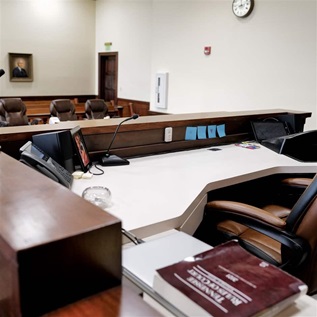Pew Survey Finds Philadelphians Favor Bringing Slot Machines to City
Philadelphians favor bringing slot-machine gambling to the city and support the plan to build a casino along the Delaware River in Fishtown. But they oppose the idea of a casino on Market Street East in Center City.
Fifty-three percent of city residents favor slot-machine gambling in Philadelphia, while 41 percent are against the idea, according to a new poll commissioned by The Pew Charitable Trusts' Philadelphia Research Initiative.
In addition, 60 percent of those surveyed support locating one of the slots parlors on the Delaware River in Fishtown, the proposed site of the SugarHouse casino; 35 percent are opposed to this location.
But the idea of a slots parlor on Market Street East is not popular with residents: 57 percent are against it, while 39 percent are in favor.
On April 8, Foxwoods announced plans to put its casino inside the former Strawbridge & Clothier department store at the corner of 8th and Market streets. Previously, Foxwoods had been considering a site at the Gallery shopping mall at 11th and Market streets.
The poll of 800 Philadelphia residents was conducted from April 6 to April 11, 2009 by Abt SRBI Public Affairs in association with Rutgers Professor Cliff Zukin.
City officials say the two casinos, both of which have the support of Mayor Michael Nutter, could be operating in about a year. The SugarHouse project needs a go-ahead from the Pennsylvania Gaming Control Board—a May 6 hearing is scheduled—after having missed a January deadline for having 1,500 slot machines in operation. Foxwoods needs a zoning change, which is the subject of a City Council hearing scheduled for May 7.
In the survey, backing for slots-gambling is broad: No demographic group is opposed, although some are closely divided. The strongest support comes from people with household incomes over $65,000 (66 percent), whites (62 percent) and men (59 percent). The strongest opposition comes from blacks (46 percent), people with college degrees (46 percent), women (45 percent) and people with household incomes below $30,000 (45 percent).
Support for the Delaware River site varies little from one group to another. Opposition to the Market Street East site, though widespread, is strongest among blacks and women (62 percent each).
The poll sample was not large enough to provide statistically-significant geographic breakdowns of the results.
About the Survey
The survey was conducted by telephone between April 6 and April 11, 2009, among a citywide random sample of 800 city residents, ages 18 and older. The final sample was weighted to reflect the demographic breakdown of the city. The margin of error for the entire sample is +/- 3.5 percentage points. The margin of error is higher for subgroups. Surveys are subject to other error sources as well, including sampling coverage error, recording error and respondent error.
Abt SRBI Public Affairs designed the survey and conducted all interviewing, working with Cliff Zukin, veteran pollster and director of the public policy program at Rutgers University.






